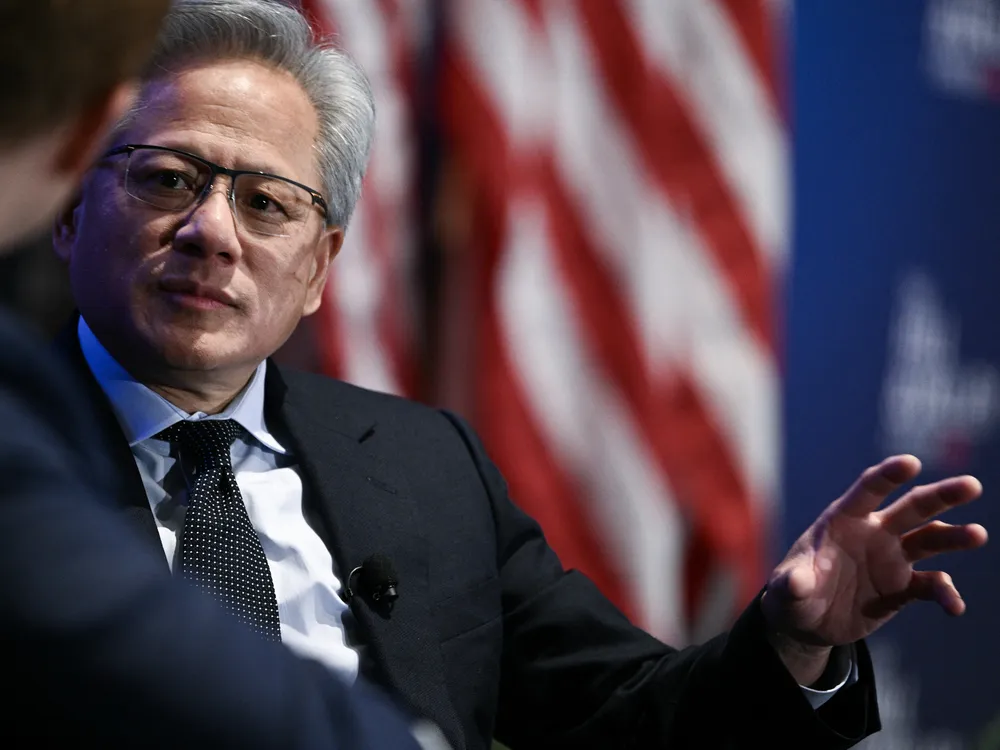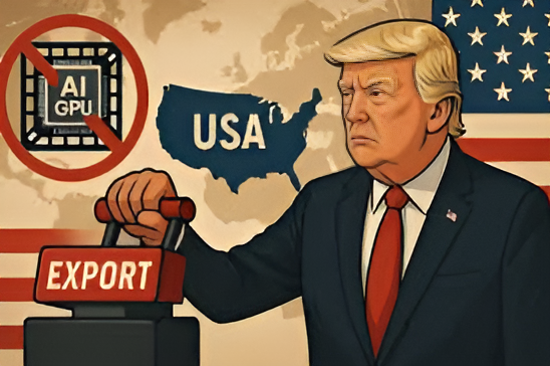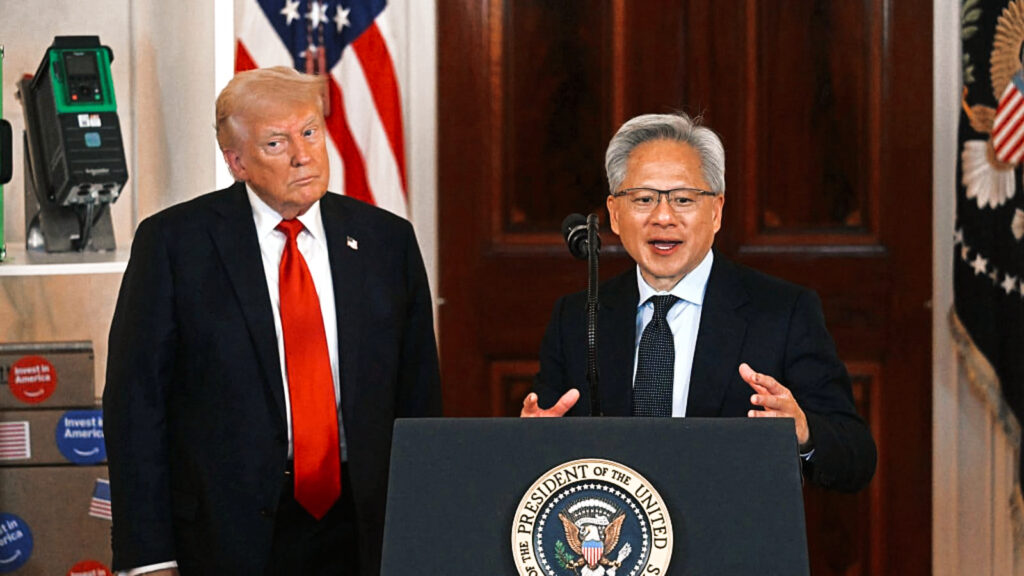The Trump chip export policy of 2025 marks a sharp reversal from the Biden-era semiconductor restrictions — a shift that has reignited debate about national security, trade, and technological dominance in the global AI race.
What Was Biden’s Chip Export Rule — And Why It Backfired
The Biden administration introduced the “AI Diffusion Rule” to restrict the export of advanced U.S. chips to adversarial nations, especially China. The goal was to curb the use of American AI technology for military and surveillance purposes.

However, the rule’s overreach caused major harm:
- Nvidia projected $5.5 billion in losses
- AMD anticipated a $1.5 billion hit
- American firms began losing global market share to competitors in South Korea, the Netherlands, and Taiwan
These unintended consequences showed how the policy hurt U.S. innovation more than it hindered China.
How the Trump Chip Export Policy Reverses Course
In 2025, President Trump repealed the AI Diffusion Rule, arguing it was stifling American tech leadership. The Trump chip export policy takes a more strategic and targeted approach:
- Ends broad chip export bans
- Introduces focused restrictions on military-linked buyers
- Invests in reshoring semiconductor manufacturing
This shift allows the U.S. to compete globally while maintaining necessary national security measures.
Why Trump’s Approach May Actually Work
The Trump chip export policy is built on economic realism:

- China still obtained chips — just from non-U.S. sources
- U.S. companies lost money and influence
- Investors and chipmakers demanded regulatory clarity
By repealing Biden’s rules, Trump gives American tech firms room to innovate and expand instead of backing away from key markets.
Industry Response to Trump Chip Export Policy
The industry welcomed the change:
- Nvidia stock rose 3% after the announcement
- Export confidence is returning
- Analysts expect recovery in U.S. chip revenues in 2026
The Trump chip export policy is seen as a pro-business, pro-competition solution, even among those with national security concerns.
Final Thoughts: Strategic Leadership in the Global Tech War
While national security is vital, blanket policies like Biden’s often miss the target and damage domestic strength. The Trump chip export policy of 2025 suggests a smarter path forward — one that protects U.S. interests while letting American companies lead the world in semiconductors and AI.



